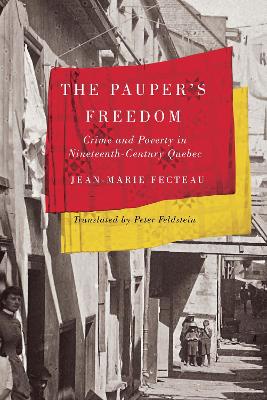Studies on the History of Quebec/Etudes d'histoire du Quebec
1 total work
At the turn of the nineteenth century, the recognition that individual and collective freedom lay at the foundation of the social order held out the hope for a more or less definitive solution to the problems of poverty and crime. But, in Quebec as elsewhere, the aspirations associated with the transition to democracy and "liberalism" rapidly gave way to a bourgeois ideology where the poor were held personally responsible for their sad plight - since they were free, their poverty was allegedly their own fault. Jean-Marie Fecteau analyzes this complex history and the ways in which it was influenced by both the specific conditions of Quebec's political context and the overarching issues raised by the transition to liberal democracy in the West. The Pauper's Freedom is a connected history that offers a profound renewal of the sociopolitical history of the nineteenth century. Fecteau takes an original approach to the role played by the province's institutions - including the state and the Catholic Church - and details the liberal mode of regulation that was then spreading throughout the western world.
In addition to offering a penetrating discussion of the history of the regulation of crime and poverty, The Pauper's Freedom also engages in an ambitious consideration of the global history of liberalism as a new relationship to the world - a relationship that continues to shape our lives.
In addition to offering a penetrating discussion of the history of the regulation of crime and poverty, The Pauper's Freedom also engages in an ambitious consideration of the global history of liberalism as a new relationship to the world - a relationship that continues to shape our lives.
